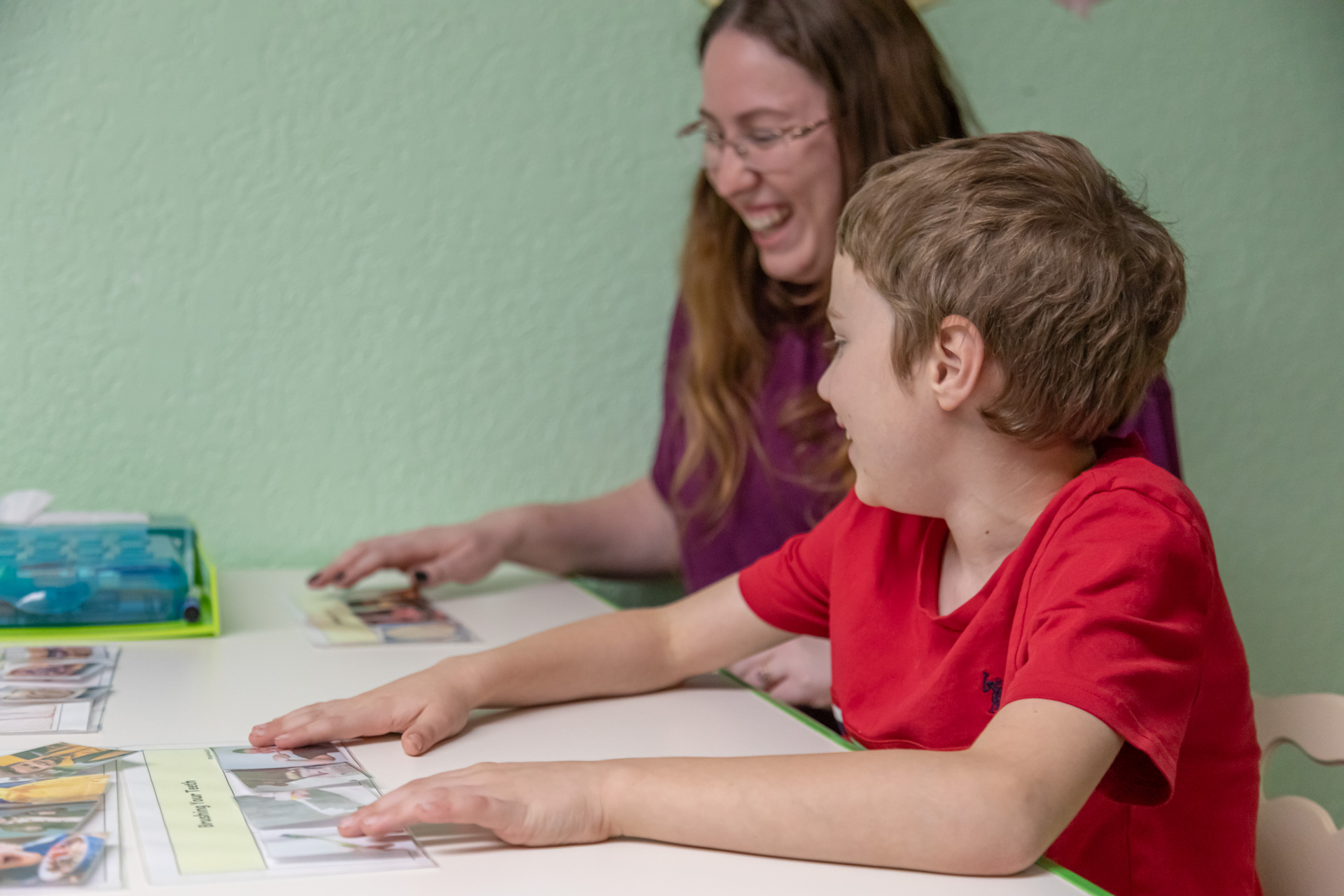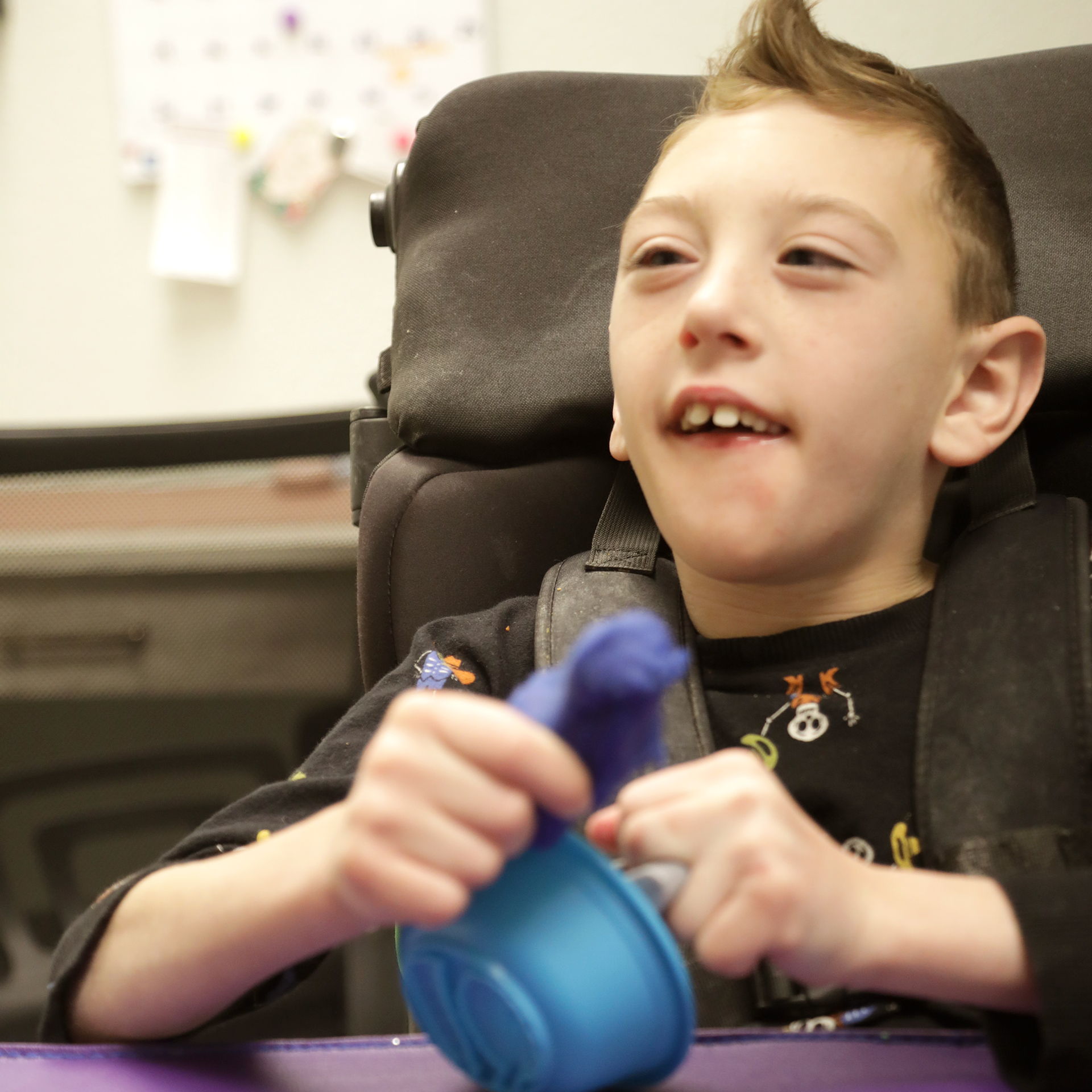What's the Difference Between a Speech Therapist and a Speech Pathologist


Understanding the Terminology
Navigating the realm of speech-language therapy can be a daunting task for many, especially when it comes to understanding the roles and titles like "Speech Therapist" and "Speech Pathologist." Though often used interchangeably, these terms evoke curiosity regarding any differences in responsibilities, qualifications, or scope of practice. This article aims to disentangle common misconceptions, offering clarity for those exploring this field as a career or seeking services for themselves or loved ones.
Are Speech Therapist and Speech Pathologist Different?

Interchangeability of terms
The terms “speech therapist” and “speech pathologist” are used interchangeably, and there is no significant difference between them. Both refer to the same profession dedicated to the assessment, diagnosis, and treatment of communication and swallowing disorders. Speech-language pathologists (SLPs) are trained healthcare professionals who work with individuals of all ages, focusing on enhancing speech quality, developing language skills, and ensuring safe swallowing. They provide tailored therapy plans based on individual needs and may employ a variety of therapeutic techniques.
Global variations in terminology
While the professional roles are the same, terminology can vary by region. In Australia, the term "speech pathologist" is more commonly used, whereas "speech-language pathologist" is predominantly favored in the United States. In the United Kingdom, the term "speech therapist" is often preferred. Regardless of the title, all professionals in this field are required to have appropriate education and certifications, ensuring that they are equipped to address various communication disorders effectively.
In summary, whether you refer to them as speech pathologists or speech therapists, the expertise and service provided remain consistent across different jurisdictions and contexts.
Defining the Roles: Speech-Language Pathologists at Work

Scope of practice for SLPs
Speech-language pathologists, also known as speech therapists, play a crucial role in diagnosing and treating communication and swallowing disorders across all age groups. Their practice encompasses a wide range of activities designed to improve clients' abilities in several areas:
- Articulation and Speech Skills: SLPs help clients improve their ability to produce specific sounds and enhance overall speech clarity.
- Language Comprehension and Expression: They work with clients to address challenges related to understanding language and effectively expressing thoughts.
- Fluency and Voice Disorders: Stuttering and other fluency issues are targeted through specialized therapies.
- Cognitive-Communication Skills: SLPs also support individuals facing cognitive-communication challenges, often related to memory and attention difficulties.
- Swallowing and Feeding Disorders: They assess and treat dysphagia (swallowing issues), which can severely affect an individual's quality of life.
Common conditions treated by SLPs
The variety of conditions SLPs address highlights their important therapeutic role:
- Articulation Disorders: Issues with pronouncing sounds correctly.
- Language Disorders: Both receptive (understanding) and expressive (speaking) language difficulties.
- Social Communication Disorders: Problems in using verbal and nonverbal communication in social situations.
- Fluency Disorders: Stuttering and cluttering that impact smooth speech.
- Neurological Conditions: Such as aphasia, typically resulting from strokes or brain injuries.
SLPs are vital in helping individuals enhance their communication abilities, promoting better interaction and integration within their communities.
Path to Becoming a Speech Therapist

How do you become a speech therapist?
To become a speech therapist, the educational pathway starts with a bachelor’s degree in a related field such as Communication Sciences and Disorders or Psychology. This foundational step is crucial as it prepares you for the advanced studies ahead.
Next, you must pursue a Master of Science in Speech-Language Pathology from an accredited program. This graduate program typically involves around 400 hours of supervised clinical experience, allowing you to apply theoretical knowledge in practical settings. Upon completion of your master’s, you are required to undertake a Clinical Fellowship, where you will accumulate at least 1,260 hours of supervised clinical experience in order to refine your skills under professional guidance.
Following your clinical fellowship, the next step is to pass the Praxis Examination in Speech-Language Pathology. To qualify for licensure, a minimum passing score of 162 is required. In addition to passing this exam, obtaining state licensure is essential, as each state has its own regulations regarding practice.
Finally, while not mandatory, many aspiring speech therapists pursue the Certificate of Clinical Competence in Speech-Language Pathology (CCC-SLP) from the American Speech-Language-Hearing Association (ASHA). This adds credibility and showcases your commitment to the profession. It also entails fulfilling ongoing continuing education requirements to maintain your certification, ensuring that you stay updated with the latest in the field.
Financial Rewards in Speech Pathology

What is the salary of a speech pathologist?
As of May 2023, the mean annual salary for Speech-Language Pathologists in the United States is $92,630, translating to an hourly wage of $44.53. The median salary stands at $89,290 per year or $42.93 per hour. Those earning in the lowest 10% can expect about $57,910 annually, while the highest earners in the top 10% may make up to $129,930 per year. The industry is set to grow significantly, with an expected 18% increase in employment from 2023 to 2033, creating approximately 33,300 new jobs.
Factors affecting salaries
Salaries for speech pathologists can vary widely due to several factors. Key elements include:
- Industry: Different sectors offer varying pay scales; healthcare typically provides higher against educational settings.
- Location: Geographic areas significantly influence earnings with states like California and Nevada showing higher compensation rates.
- Experience: More experienced professionals tend to earn more, alongside advanced certifications.
Challenges on the Road to Becoming a Speech Pathologist

Is becoming a speech pathologist considered difficult?
Becoming a speech pathologist is indeed considered a challenging path. The education and training process is rigorous, beginning with a bachelor's degree in communication sciences or a related field. For those coming from unrelated fields, prerequisite courses may be necessary before being admitted to a graduate program in speech-language pathology.
After tackling undergraduate studies, aspiring SLPs must earn a master’s degree, complete extensive clinical practicum experiences, and pass a national examination. This extensive commitment to academic and practical learning ensures they are fully prepared to address complex communication and swallowing disorders.
What are some common misconceptions about the career?
Despite the rewarding career, misconceptions abound. Many believe that speech pathologists solely work with children or only address speech pronunciation. In reality, SLPs assess and treat a diverse range of conditions across all ages, including cognitive communication issues, social interactions, and swallowing disorders. These misconceptions can deter potential candidates who might otherwise thrive in this fulfilling field.
Highest Earning Potential in Speech Therapy
What kind of speech therapist makes the most money?
The financial rewards in the field of speech therapy can be substantial, especially for those in high-paying roles. The highest-paid speech-language pathologists (SLPs) typically work in civic and social organizations, with an impressive average salary of approximately $130,620 annually. Other lucrative opportunities exist within home health care services, where one can earn around $121,410 per year.
Additionally, SLPs who take on management roles report an average salary of about $112,110. Throughout the profession, the top 10% of SLPs rake in $129,930 or more each year, translating to an hourly wage of about $62.47. In contrast, the average speech pathologist salary stands at $89,290, showcasing significant income variation depending on the environment.
What career advancement opportunities exist for SLPs?
With the speech-language pathology field projected to expand by 19% over the next decade, opportunities for career advancement are on the rise. SLPs can pursue leadership positions, specialize in areas such as pediatric or geriatric therapy, and engage in research or educational roles. These paths not only enhance earning potential but may also provide satisfying ways to grow professionally while contributing to improved patient outcomes.
Comparing Speech Therapists and Occupational Therapists
What are the differences between a speech therapist and an occupational therapist?
The distinction between speech therapists (speech-language pathologists, SLPs) and occupational therapists (OTs) centers on their areas of expertise. SLPs focus specifically on communication skills and swallowing abilities, working on issues such as:
- Articulation difficulties
- Fluency disorders like stuttering
- Cognitive-communication challenges, which impact thinking and social interaction In contrast, OTs aim to enhance a person's ability to perform daily living activities, such as:
- Dressing and grooming
- Feeding and personal hygiene
- Engaging in recreational activities to promote quality of life
Although both professions require advanced degrees and develop tailored treatment plans, their therapeutic goals vary significantly. SLPs typically earn a median annual salary of about $84,140, while OTs generally enjoy a higher median income of approximately $93,180 annually.
What are the collaborative opportunities between the two professions?
SLPs and OTs often work together to provide holistic care for clients, especially those recovering from injuries or dealing with developmental disorders. Collaboration can include:
- Joint assessments to identify overlapping challenges in communication and daily living skills.
- Integrated treatment plans that combine speech and functional skill interventions, ensuring comprehensive support for clients.
- Regular communication about client progress, promoting coordinated efforts in achieving recovery goals.
Through teamwork, both SLPs and OTs can enhance their clients' overall well-being, bridging the gap between communication and practical life skills.
Final Thoughts on Speech-Language Professionals
Whether known as speech therapists or speech pathologists, these professionals play a crucial role in the healthcare and educational fields, addressing diverse communication and swallowing challenges across all age groups. With demands projected to rise, the profession offers both rewarding challenges and promising career opportunities. Understanding their functions and the nuanced differences in terminology can help you make informed decisions, whether considering a career in this field or looking for therapeutic services. As the need for communication support continues to grow, so does the vital impact of these skilled practitioners.
References
- Speech Pathologist vs. Speech Therapist: Key Differences
- What is the Difference Between a Speech Therapist and a Speech ...
- What Does a Speech Pathologist Do? | Emerson College Online
- The Difference Between A Speech Therapist & A Speech Pathologist?
- Speech Therapist vs Speech Pathologist | What is the Difference?
- What Is a Speech-Language Pathologist (Speech Therapist)?
Recent articles

What to Expect at Your First Therapy Session
Discover what your child’s first therapy session looks like, from rapport building to goal setting, and how families can feel confident starting care.

Celebrating Small Wins: How Therapy Helps Kids Build Confidence All Year Long
Learn why small wins in therapy matter, how they boost your child’s confidence, and simple ways families can celebrate progress all year long.

Empowering Missoula Children to Grow With Confidence and Connection
Learn how ABA therapy in Missoula helps children build communication, independence, and confidence through personalized, family‑centered support at Advanced Therapy Clinic.

Compassionate Pediatric Therapy in Butte, Montana
A welcoming place where every child’s potential is celebrated

How Pediatric Therapy Helps Kids Thrive across Montana and Wyoming
A supportive guide for families exploring therapy options in Billings, Butte, Missoula or Sheridan.

How to Choose the Right Pediatric Therapy Clinic in Billings, Montana
A Parent‑Friendly Guide To Finding The Best Support For Your Child

